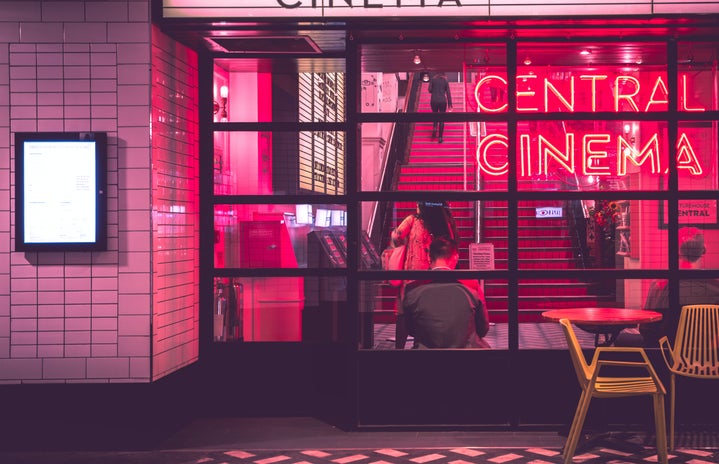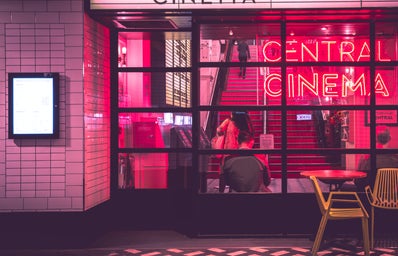Young women and teenage girls have acted as the film industry’s muse for decades – you think smiling beauty, loved by all but – still – with an undeniable air of mystery. You might think Summer, Ramona or Sofia Coppola’s Marie Antoinette. Womanhood is a spectrum, but can cinema ever accurately depict what it really means to be a woman? And with a rising platform for female filmmakers, will these representations get closer to the ‘real thing’?
In light of the premiere of cinema mogul Sofia Coppola’s ‘Priscilla’, based on Priscilla Presley’s memoir ‘Elvis and Me’, let’s look at the ways in which women and the relationships surrounding them are presented on film and the effect of the filmmaker on these depictions.
When shooting women on film, it’s seemingly the male prerogative to make the characters look as whimsical as possible – the cinematic appeal being their untouchable nature. Think of the final girls, women like Carrie and ‘Halloween’’s Laurie, who are written to be strong, to a point; they were written to appeal to teenage boys and young men, brave enough to make it in horror, ‘needy’ enough to be attractive to a 1970’s male demographic. John Hughes’ exploration of girlhood in the 80s is a less male-gaze-centred approach to girlhood but – still – it is superficial femininity; Molly Ringwald’s pearls, fashion, and adolescent relationships in ‘Pretty in Pink’ and the Princess and Basket Case tropes of ‘The Breakfast Club’ may appeal to young girls, but it rarely resonates on a deeper level. The 90s were filled with cult classics in the same vein as Hughes’ universe – exploring teenage girls through the aesthetic, the clothes, the groups and the exploration of relationships, rarely delving deeper. Fast forward and we’re met with the Manic Pixie Dream Girl of the 2000s and 2010s – ‘500 Days of Summer’, ‘Eternal Sunshine of the Spotless Mind’, and ‘Scott Pilgrim vs. The World’ once again, portray women through the male gaze; albeit the intricacies of Summer’s character leave some room for considering whether the obvious male centred view was purposeful. On a surface level, they’re relatable – but the female viewer isn’t provided with enough of their internal thoughts and feelings to truly connect.
Amid male-centred cinema, femininity through the eyes of women has been acting in synchronicity – but it is only in recent times, with female directors such as Greta Gerwig and Sofia Coppola, that they have been given even a semblance of an equal platform to explore femininity through the eyes of a female-identifying individual. Nonetheless, female directors have been exploring women’s stories for decades.
Amidst the second wave of feminism, many women directors took to documentaries and experimental films due to an inaccessible industry but a feature film that stands out as one to resonate even now in the world of fourth-wave feminism is Claudia Weill’s ‘Girlfriends’. Hailed by Vanity Fair as a ‘’Godmother’’ to ‘Lady Bird’, the film focuses on a career-driven woman trying to make it in the creative industry, and the setbacks she faces when her roommate decides to leave to get married – Weill explores the realities of female friendships, the anxieties faced by young women and their position in society, as well as romantic relationships, but on a much more profound level in comparison to many of the feature’s contemporaries.
Kathryn Bigelow became active in the 80s, notably casting the original final girl Jamie Lee Curtis in her 1989 classic ‘Blue Steel’; unlike in Curtis’ previous films, the focus is not highlighting her sexual appeal, but the character – instead – presents in its subtleties the hardships of being a woman in a male-dominated career (in this instance, a 1980’s police officer).
Popular culture and discourse around feminist film creators has – in recent times – often been centred around Greta Gerwig. We first think ‘Barbie’, the 2023 blockbuster which took the world by storm, an exploration of the diversity of womanhood and feelings of inadequacy in a 21st-century society, though it should be noted that some critiqued the film’s feminist message as being too surface level. Before this was ‘Little Women’, the seventh film adaptation of Louisa May Alcott, which looked – again – at the different experiences of young women, and how their personalities match the world around them. Her 2017 directorial debut ‘Lady Bird’ offered an exploration of the angsty teen which many young women resonate with in some vein, leading her to become one of the most well-known female directors of our time.
Sofia Coppola, revered by many femme-presenting creatives, ushered in her behind-the-screen career with 1999’s ‘The Virgin Suicides,’ imbuing a refreshing connectivity between audience and characters, fostering relatability between the audience and the Lisbon sisters, unachieved by the book depicted girlhood entirely through the eyes of a teenage boy, written by a male author. The 2003 classic ‘Lost in Translation,’ another Coppola masterpiece, navigates the intricacies of communication within relationships. Based on her previous work it is only to be expected that ‘Priscilla’ is already said to present a ‘’characteristically sisterly and non-judgemental intimacy with her heroine’’, focusing not on the hedonistic tendencies of the ‘King’ like that depicted in Baz Luhrmann’s 2022 feature ‘Elvis’.
While the spectrum of femininity depicted in cinema is vast, films directed by women or those who understand female experiences forge a profound connection between characters and female audiences. The evolution of female representation in film persists, shaped by a growing celebration of female directors’ intent on unravelling the rich tapestry of womanhood through their unique, empowered lenses.


